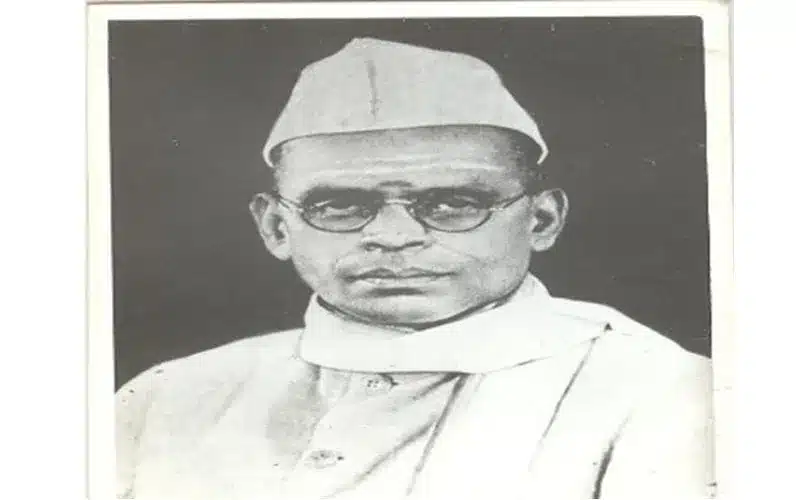S. Satyamurti, an Indian politician

S. Satyamurti (19 August 1887 – 28 March 1943) was an Indian independence activist and politician.
He protested against the Partition of Bengal, the Rowlatt Act, the Jallianwala Bagh massacre, and the Simon Commission.
Between 1930 and 1934, He headed the Tamil Nadu Congress Committee and the provincial wing of the Swaraj Party. In 1938, he became Mayor of Madras. He was a member of the Imperial Legislative Council from 1934 to 1940.
Early Life
S. Satyamurti was born on 19 August 1887, Tamil Nadu, India. He graduated with a BA degree from Madras Christian College and went on to study law at Madras Law College.
Political Career
From his college elections, he got into politics. Eventually, he became a leader of the Indian National Congress.
To protest the Rowlatt Act and Montagu-Chelmsford reforms, the Congress sent Satyamurti to the Joint Parliamentary Committee of the United Kingdom in 1919.
Satyamurti was against the caste system in Hinduism. In addition, he believed in the constitutional process and opposed Gandhi’s decision not to take part in the colonial government. He became known as Dheerar.
He believed in a parliamentary democracy for India.
Together with Motilal Nehru and C R Das, he was a leading member of the Swaraj Party. It took great courage to oppose Mahatma Gandhi who during that time had a sweeping influence over the nation.
He hoisted the Indian flag on top of the Parthasarathy Temple in Chennai in 1930, and he got arrested.
Through his oratory skill, he became an influential leader, and he was one of the main reasons that the party won the Madras elections in 1937. He didn’t participate in the Rajaji government, though, due to his frank criticism of the party.
He became mayor of Madras in 1939. The city was suffering from a water crisis. He convinced the British to build a reservoir west of Madras to increase the water supply. The Poondi reservoir was built after his death. It’s now called Satyamurti Sagar.
He loved theater and the performing arts. In Madras, he organized Hindustani music concerts. In addition to being chairman of the Board of Studies in Music, he served as the president of Faculty of Fine Arts, at the University of Madras. He helped to start the Music Academy of Madras.
He also mentored K Kamaraj.
In 1942, he was arrested for taking part in an individual Satyagraha during the Quit India movement.
Death
He died on 28 March 1943, Madras, India.
Observer Voice is the one stop site for National, International news, Sports, Editor’s Choice, Art/culture contents, Quotes and much more. We also cover historical contents. Historical contents includes World History, Indian History, and what happened today. The website also covers Entertainment across the India and World.
Follow Us on Twitter, Instagram, Facebook, & LinkedIn

